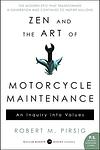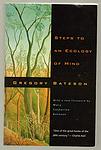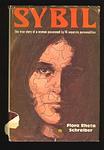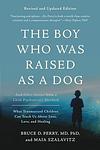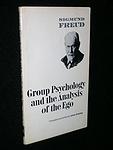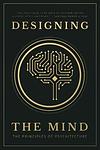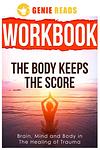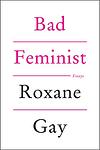The Greatest American, Austrian "Psychological, Nonfiction" Books Since 1900
Click to learn how this list is calculated.
This list represents a comprehensive and trusted collection of the greatest books. Developed through a specialized algorithm, it brings together 305 'best of' book lists to form a definitive guide to the world's most acclaimed books. For those interested in how these books are chosen, additional details can be found on the rankings page.
Genres
The Psychological genre of books typically explores the inner workings of the human mind and emotions, often delving into complex and sometimes disturbing psychological states. These books may focus on mental illness, trauma, relationships, or personal growth, and often challenge readers to confront their own beliefs and perceptions. Psychological books may be suspenseful, thought-provoking, and emotionally intense, offering readers a deep and often unsettling glimpse into the human psyche.
Countries
Date Range
Reading Statistics
Click the button below to see how many of these books you've read!
Download
If you're interested in downloading this list as a CSV file for use in a spreadsheet application, you can easily do so by clicking the button below. Please note that to ensure a manageable file size and faster download, the CSV will include details for only the first 500 books.
Download-
1. Zen and the Art of Motorcycle Maintenance by Robert M. Pirsig
The book is a philosophical novel that explores the protagonist's journey across the United States on a motorcycle with his son, during which he delves into questions about life, philosophy, and the nature of "Quality". The narrative is interspersed with flashbacks to the protagonist's life before the journey, including his time as a university professor and his struggle with mental illness. The book aims to reconcile the dichotomy between classical and romantic understandings of the world, ultimately arguing for a holistic approach that integrates both perspectives.
The 367th Greatest Book of All Time -
2. Man's Search for Meaning by Victor Frankl
This book is a memoir written by a psychiatrist who survived the Nazi concentration camps during World War II. The author shares his experiences in the camps and his psychological approach to surviving and finding meaning amidst extreme suffering. He introduces his theory of logotherapy, which suggests that life's primary motivational force is the search for meaning, and argues that even in the most absurd, painful, and dehumanized situation, life can be given meaning.
The 567th Greatest Book of All Time -
3. Civilization and Its Discontents by Sigmund Freud
This book is a seminal work in the field of psychology, exploring the inherent tension between civilization and the individual. The author, a famed psychologist, argues that civilization's imposition of societal norms and restrictions leads to individual unhappiness and discontent. He delves into the conflict between the human desire for freedom and society's need for order, suggesting that this tension is at the root of much human suffering. The book further explores concepts such as the super-ego, guilt, and the death drive, offering profound insights into the human psyche.
The 1110th Greatest Book of All Time -
4. Three Essays on the Theory of Sexuality by Sigmund Freud
This book is a seminal work that presents the author's theories on human sexuality, including his concept of sexual development through psychosexual stages. It explores topics such as the sexual aberrations, infantile sexuality, and the transformation of puberty. The author argues that sexual drive is present from birth, and that children go through several stages of sexual development. He also discusses the idea of sexual perversions and their origins. This book is considered a foundational text in the field of psychoanalysis.
The 1207th Greatest Book of All Time -
5. The Uses of Enchantment by Bruno Bettelheim
"The Uses of Enchantment" is a psychological analysis of fairy tales and their importance in childhood development. The book argues that these stories allow children to navigate their emotions and understand aspects of life they are yet to experience. By exploring various themes, such as separation anxiety, oedipal conflict, and sibling rivalry, through well-known fairy tales, the author demonstrates how these narratives contribute to a child's moral education and understanding of the human nature.
The 1777th Greatest Book of All Time -
6. Steps To An Ecology Of Mind by Gregory Bateson
The book in question is a seminal collection of essays and lectures that delve into the interconnectedness of biological, psychological, and sociological systems. The author, an anthropologist and cybernetic theorist, explores the concept of the mind as a fundamental element of the larger ecological system, challenging traditional boundaries between individual and environment. Through a series of interdisciplinary discussions, the work examines patterns of communication, the nature of learning and adaptation, and the importance of understanding the complex relationships that underpin the functioning of ecosystems, societies, and individuals. The author's innovative ideas encourage readers to reconceptualize the way they think about the world, emphasizing the necessity of a holistic approach to solving the myriad of problems facing humanity.
The 3093rd Greatest Book of All Time -
7. Sybil by Flora Rheta Schreiber
The book is a true story about a woman who, after suffering severe physical and emotional abuse as a child, developed sixteen different personalities as a coping mechanism. The narrative follows her journey with her psychiatrist as they attempt to fuse her multiple identities into one through therapy and treatment. The book offers an in-depth look at Dissociative Identity Disorder, its causes, manifestations, and treatment.
The 6664th Greatest Book of All Time -
8. How To Change Your Mind: What The New Science Of Psychedelics Teaches Us About Consciousness, Dying, Addiction, Depression, And Transcendence by Michael Pollan
In "How To Change Your Mind," Michael Pollan explores the history, science, and potential therapeutic uses of psychedelic drugs such as LSD and psilocybin. He interviews researchers, therapists, and individuals who have undergone psychedelic experiences, and shares his own personal experiences with these substances. Pollan argues that psychedelics have the potential to unlock new understandings of consciousness, spirituality, and mental health, and could offer new treatments for addiction, depression, and end-of-life anxiety. He also explores the cultural and political factors that led to the demonization and criminalization of these substances, and advocates for a reevaluation of their legal status in order to facilitate further research and exploration.
The 6914th Greatest Book of All Time -
9. The Boy Who Was Raised As A Dog : And Other Stories From A Child Psychiatrist's Notebook by Bruce D. Perry, Danny Campbell, Maia Szalavita
This book delves into the complex world of child psychiatry through a series of poignant case studies, each shedding light on the impact of trauma on the developing brain. The narrative explores the remarkable resilience of children and the ability of the right therapeutic interventions to heal psychological wounds. Through the lens of a seasoned child psychiatrist, readers gain insights into the science of human experience, the importance of nurturing relationships, and the transformative power of empathy and understanding in overcoming the most harrowing childhood experiences.
The 7815th Greatest Book of All Time -
10. Group Psychology and the Analysis of the Ego by Sigmund Freud
This book delves into the exploration of group dynamics and mass psychology. The author, a renowned psychologist, theorizes about the nature of groups, how they form, and how individuals within them behave. He also explores the concept of the 'ego' and its role within these group dynamics. The book provides a comprehensive analysis of group psychology, focusing on aspects such as leadership, suggestion and contagion, and the relationship between individual and group mind. It's a significant contribution to the understanding of mass movements and crowd behavior.
The 7960th Greatest Book of All Time -
11. Thoughts for the Times on War and Death by Sigmund Freud
This book is a profound exploration of the psychological impact of war and death on the human psyche. The author, a renowned psychologist, delves into the collective guilt and anxiety experienced by society during wartime, and the denial of death's inevitability as a self-preserving mechanism. He also discusses the disillusionment that arises when the veneer of civilization is stripped away, revealing the primal instincts beneath. The book is a deep, philosophical discussion about the human condition, morality, and the psychological consequences of war and death.
The 7960th Greatest Book of All Time -
12. Phantoms In The Brain by Vilayanur S. Ramachandran, Sandra Blakeslee
"Phantoms in the Brain" explores the intriguing world of neurology through the lens of patients experiencing bizarre neurological disorders. The book delves into the mysteries of the human brain, examining cases of phantom limb pain, delusions, and other cognitive anomalies. Through these case studies, the authors illustrate how these unusual conditions can shed light on the normal workings of the brain, revealing the complex mechanisms behind human perception, behavior, and the sense of self. The narrative combines scientific rigor with engaging storytelling, making profound insights into neuroscience accessible to a general audience.
The 8404th Greatest Book of All Time -
13. The Body Keeps The Score by Bessel van der Kolk
This book delves into the complex effects of trauma on the mind and body, exploring how traumatic experiences can alter an individual's biology and brain chemistry, leading to lasting psychological and physical consequences. The author, a renowned expert in trauma, integrates clinical case studies with scientific research to demonstrate how trauma reshapes the brain's wiring, particularly areas dedicated to pleasure, engagement, control, and trust. The book also offers hope by presenting advances in treatment, including innovative therapies that help patients reclaim their lives, suggesting that recovery is possible through understanding the science of trauma, mindfulness, and reconnection with one's body.
The 9948th Greatest Book of All Time -
14. Hunger by Roxane Gay
"Hunger" is a powerful memoir that delves into the complex relationship between the author's body and her experiences of trauma, shame, and self-worth. Roxane Gay fearlessly explores the physical and emotional implications of living in a world that often judges and marginalizes individuals based on their appearance. Through her raw and honest storytelling, she invites readers to confront their own biases and challenges societal norms, ultimately advocating for self-acceptance and compassion.
The 10278th Greatest Book of All Time
Reading Statistics
Click the button below to see how many of these books you've read!
Download
If you're interested in downloading this list as a CSV file for use in a spreadsheet application, you can easily do so by clicking the button below. Please note that to ensure a manageable file size and faster download, the CSV will include details for only the first 500 books.
Download